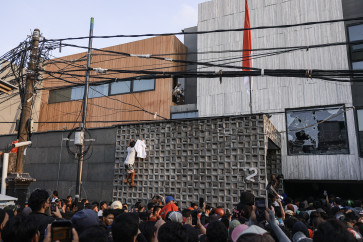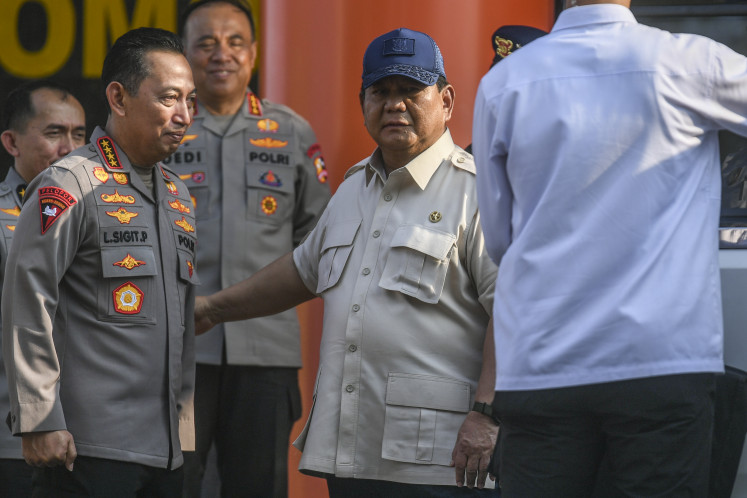Popular Reads
Top Results
Can't find what you're looking for?
View all search resultsPopular Reads
Top Results
Can't find what you're looking for?
View all search resultsMuslim groups support vaccination but haram concerns remain
Islamic leaders and groups have conveyed their support for the government’s measles and rubella (MR) immunization program, asserting the importance of vaccination for the benefit of the Muslim community
Change text size
Gift Premium Articles
to Anyone
I
slamic leaders and groups have conveyed their support for the government’s measles and rubella (MR) immunization program, asserting the importance of vaccination for the benefit of the Muslim community.
Indonesian Ulema Council (MUI) executive Lukmanul Hakim, who leads the council’s Assessment Institute for Foods, Drugs and Cosmestics (LPPOM), praised the government’s initiative to hold a mass MR immunization program, as measles and rubella remain among the most serious health concerns in Indonesia.
“This [preventive measure] is important,” Lukmanul said on Friday. “We are fully supportive of the government’s efforts to protect its people through immunization.”
After successfully reaching 35 million children during the first stage of the MR vaccination campaign in six provinces across Java in August and September last year, the government is set to hold the second stage of the campaign in the same period this year, targeting 32 million children in 28 provinces outside Java. Children aged between nine months and under 15 years will receive the MR vaccination for free at schools and public health facilities.
A women’s wing of Indonesia’s largest Muslim organization, Nahdlatul Ulama (NU), Muslimat NU, has also voiced its support for the government’s MR immunization campaign.
“In principle, we are supportive of any of the government’s programs that aim to protect future generations,” Muslimat NU health and population department head Erna Yulia Soefihara said.
According to the Health Ministry, the MR immunization campaign is one strategy of its effort to achieve Indonesia’s commitment to eliminating measles and controlling rubella or congenital rubella syndrome by 2020.
“To be able to cut the transmission chain of measles and rubella, the government must ensure that immunization coverage in all areas across Indonesia stands at 95 percent at minimum,” the ministry’s disease control and prevention director general, Anung Sugihantono, said.
According to a 2016 Health Ministry data, the regions with the highest number of cases of measles are located outside Java. They include Aceh, Jambi and South Sulawesi. In late 2017, measles and malnutrition cases hit several districts across Asmat regency in Papua.
Islamic community and media group Halal Corner said it was in a full support of the government’s programs to protect public health. However, as there was growing awareness of the importance of halal products among Muslims in Indonesia, it was understandable that many Muslims questioned whether the vaccines were halal, it added.
“Indonesian Muslims are aware of the importance of ensuring everything they use and consume is halal. It’s not an option but an [religious] obligation,” said Halal Corner founder and CEO Aisha Maharani.
“As long as there are no halal vaccines available, let us respect Muslim people who want to make their own decision to gain immunity by using methods and materials they deem halal and thayyib,” she said, without explaining further.
According to LPPOM MUI, as of today, only two vaccines have received halal certification from the body. They are the influenza and meningitis vaccines.
Regarding MR vaccines, Lukmanul said, state pharmaceutical company Bio Farma had come to LPPOM MUI to discuss the halal certification procedure, including the criteria for halal vaccines.
“They said they wanted to first carry out a self-evaluation. They haven’t come to see us again since,” said Lukmanul.
The Jakarta Post has sent an interview request to Bio Farma but is yet to receive a response.
Bio Farma president director M. Rahman Roestan said in April that in general, the concept of halal pharmacy could not be separated from the concept of good manufacturing practices (GMP) as stipulated in regulations issued by either the Food and Drug Monitoring Agency (BPOM) or the World Health Organization (WHO). (stu)










